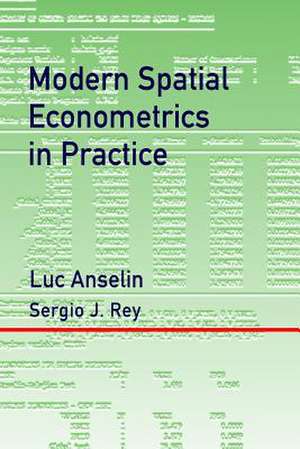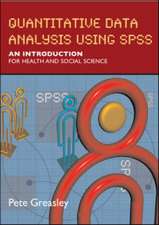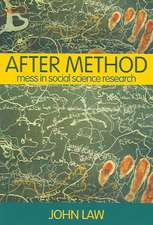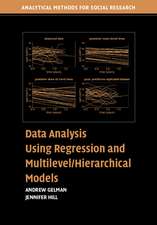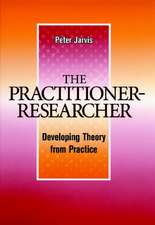Modern Spatial Econometrics in Practice
Autor Luc Anselin, Sergio Reyen Limba Engleză Paperback – 27 dec 2014
Preț: 416.99 lei
Preț vechi: 514.79 lei
-19% Nou
79.79€ • 83.52$ • 66.41£
Carte tipărită la comandă
Livrare economică 31 martie-14 aprilie
Specificații
ISBN-10: 0986342106
Pagini: 394
Dimensiuni: 152 x 226 x 28 mm
Greutate: 0.73 kg
Editura: Geoda Press LLC
Descriere
This book is the definitive user's guide to the spatial regression functionality in the software packages GeoDa and GeoDaSpace, as well as the spreg module in the PySAL library --all developed at the GeoDa Center for Geospatial Analysis and Computation. The book provides the techniques to test for and estimate spatial effects in linear regression models, addressing both spatial dependence (spatial autoregressive models) as well as spatial heterogeneity (spatial regimes models). The book also serves as an introduction and a practical guide to spatial econometrics in that it covers the methodological principles and formal results that underlie the various estimation methods, test procedures and model characteristics computed by the software. While the classical maximum likelihood estimation is included, the book's coverage emphasizes modern techniques based on the principle of generalized method of moments (GMM).
